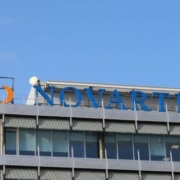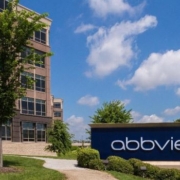Theravance Biopharma announced mixed results from a study evaluating the use of ampreloxetine to reduce symptomatic neurogenic orthostatis hypotension (nOH).
Neurocrine Biosciences announced positive results from the company’s Phase III KINECT-HD study evaluating the efficacy of valbenazine in the treatment of chorea associated with Huntington’s Disease (HD).
Six members of the U.S. Food and Drug Administration’s Peripheral and Central Nervous System Drugs Advisory Committee voted not to approve Amylyx Pharmaceuticals’ new drug application (NDA) for the company’s amyotrophic lateral sclerosis (ALS) candidate AMX0035, while four voted yes.
Some of the best medicines happen by accident, according to BioSpace. The discovery of insulin began with two doctors removing the pancreas of a healthy dog in an attempt to understand its impact on digestion. Penicillin grew out of an unrelated scientific experiment involving Staphylococcus bacteria colonies. Will someone one day write the same of Novartis’ branaplam in correlation with Huntington’s disease?
Research Roundup: Spider Silk Stabilizes Cancer-Suppressing Protein and More
Asthma, Autism Spectrum Disorder (ASD), Cancer Cells, Cancer Therapies, Coronavirus Disease 2019 (COVID-19), Gene Mutations, Heart Attacks, Heart Disease, High Cholesterol, Karolinska Institute, Medical Journals, Parkinson's Disease, Pediatrics, Proteins, R&D, Skin test, Structure, TestingMaybe Spider-Man was on to something. Although spider silk and synthetic forms have been used for a wide range of applications – including bullet-proof clothing, biodegradable bottles, and bandages and surgical thread – new research suggests it may have a use for cancer therapies.
AbbVie bolstered the company’s neuropsychiatric and neurodegenerative portfolio with the acquisition of Belgium-based Syndesi Therapeutics in a deal valued at up to $1 billion.
Research Roundup: Neurons Key to Parkinson’s ID’ed, New ALS Mechanism Discovered
Amyotrophic Lateral Sclerosis (ALS), Brain Stem, Cardiovascular Disease, COVID-19 Vaccines, Diabetes, Diet, Efficacy, Frontotemporal Dementia (FTD), Gut, Immune System, Johns Hopkins, National Institutes of Health, Neurons, Obesity, Parkinson's Disease, R&D, Severe Covid-19Researchers at the University of Copenhagen – The Faculty of Health and Medical Sciences found that activating a specialized group of neurons within the brainstem of mice restored full movement function in mice with symptoms of Parkinson’s disease.
Researchers have unlocked a key mechanism behind the genetic variant which could prove hopeful for new treatments for amyotrophic lateral sclerosis (ALS) and frontotemporal dementia (FTD).
Shares of Cassava Sciences were up more than 5% in premarket trading on February 11 after the U.S. Food and Drug Administration denied a Citizen Petition filed during 2021 on behalf of short-selling clients who sought to suspend the company’s Alzheimer’s clinical trials.
Arkuda Therapeutics secured $64 million in Series B financing. This adds to the $44 million Series A the company achieved in November 2019.






 © AbbVie Inc. All rights reserved.
© AbbVie Inc. All rights reserved.


